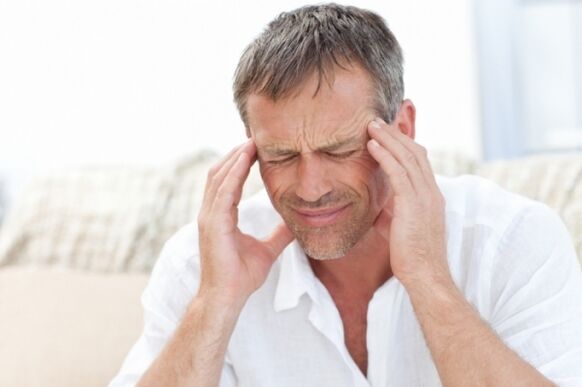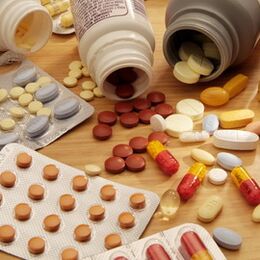Hypertension refers to many diseases related to the cardiovascular system. What is high blood pressure and how is it expressed? In medicine, this disease is called arterial hypertension, and in humans it is expressed as regular high blood pressure (190-40 ml of mercury and above). Disease is a common problem of mankind.

Causes of high blood pressure
Arterial hypertension is a multifactorial disease that develops over a long period of time and does not manifest itself in any way. The causes and favorable conditions for the development of high blood pressure are completely versatile:
- accommodations;
- stressful situations;
- professional activities;
- electromagnetic fields and radiation;
- nutritional characteristics;
- pathology of development;
- diabetes;
- elevated cholesterol.
In addition, the cause of high blood pressure is a genetic predisposition. The causes of high blood pressure in women are the result of difficult childbirth or postpartum stress.
Symptoms of pathology
Very often, the first signs of high blood pressure do not cause suspicion, as they are the result of ordinary fatigue and overwork. But if you feel a regular manifestation of symptoms and it constantly rises during the pressure measurement, you should definitely consult a doctor. Signs of high blood pressure in the initial stage:
- headache (develops in the occipital region and surrounds the head), which can occur at any time of the day, aggravated by bending or sudden movements;
- pain in the area of the heart, with experiences and stress;
- ringing in the ears;
- dizziness, blurred vision.
- feeling anxious;
- sensation of pulsation in the head;
- overwork.

As the disease progresses, the symptoms of high blood pressure worsen, the hypertensive patient shows excessive sweating, facial swelling, hand swelling and memory impairment.
Exacerbation of hypertensive crisis in hypertensive patients. Exacerbation is characterized by a sharp rise in blood pressure. This condition can be caused by stress, exercise or stopping medication.
Hypertensive patients experience the following conditions during exacerbation:
- nausea (vomiting may begin);
- sharp darkening of the eyes;
- shortness of breath;
- a feeling of severe pain in the head and chest;
- redness of the face.
Diagnostics
| Basic diagnostic methods | Description |
|---|---|
| Pressure measurement | A portable medical device is attached to the patient's belt and a cuff is placed on the shoulder. At certain intervals, the cuff inflates and the portable device records the pressure. Blood pressure is recorded every 10-15 minutes during the day and every 30 minutes at night. |
| Blood and urine test | The analysis can determine the level of hemoglobin, hematocrit, potassium, calcium, creatine, glucose, and show the level of cholesterol. |
| Instrumental diagnostics of the heart |
|
| Eye examination | The ophthalmologist performs an eye examination. In the early stages of the disease, the retinal veins dilate and the arteries narrow. |
| Ultrasound of the kidneys and adrenal glands | As the pressure increases, the nephrons, the blood filter, die in the kidneys. This can cause kidney failure. Medical ultrasound examination of the kidneys reveals: tumors in the adrenal glands, possible pathologies of the kidney tissue. |
Treatment of pathology
During treatment, patients must lead a calm lifestyle, in which neither stress nor emotional overload is present. Patients should spend more time outdoors, it is best to take long walks in the forest, in the park, near the reservoir. Adherence to the diet is essential, as proper nutrition is the key to the successful treatment of arterial hypertension.
Medical

Treatment of high blood pressure depends on the stage of the disease. The main goal of the treatment is to minimize the risk of developing cardiovascular complications and prevent the risk of death.
The goal of drug therapy is to lower blood pressure, namely to eliminate the cause of this vascular condition. At the beginning of the treatment of high blood pressure, mono- and combination therapy is advisable. If ineffective, I use combinations of low-dose antihypertensives.
The medical treatment of high blood pressure is prescribed by the attending physician after studying the results of the diagnosis. If high blood pressure occurs, therapy should be carried out with drugs such as:
- Patients with cardiovascular problems are prescribed alpha and beta blockers. To prevent heart complications, these are the best tools, but not the best.
- Vasodilators reduce pressure, but they can be used for a long time, since the drug is addictive (it can be used for up to 2 weeks).
- Diuretics and calcium antagonists produce a long-term effect. These drugs gradually normalize blood pressure.
- Administration of calcium blockers together with diuretics. These drugs inhibit the absorption of calcium in the blood vessels, resulting in dilation and a decrease in pressure.
Folk remedies
- Sugar beet. Beetroot juice should be consumed 3 times for 24 hours, with 0. 5-2 cups (2-3 weeks).
- Black chokeberry. For treatment with this method, you need to drink fruit juice 3 times a day (2 weeks). After that, the reception is interrupted for a week, after which the treatment is resumed.
- Garlic. Chop 3 heads of garlic and 3 lemons in a meat grinder. Pour the porridge into 1. 25 liters. boiling water, infused for a day, mixed. Take 50 ml 30 minutes before meals and before going to bed (3 weeks).
- Blueberry and honey. You need to mix half a glass of cranberry juice and half a glass of honey. The reception is carried out three times a day, 1 teaspoon for 2 weeks.
- For the non-pharmacological treatment of high blood pressure, herbs are used: chamomile, St. John's wort, motherwort, calendula and clover. Decoctions made from these plants can be used to treat and prevent the causes of high blood pressure, as they have a calming and stress-relieving effect.
Diet for high blood pressure

In the treatment of high blood pressure, diet is an important factor in recovery. Diet plays an important role in high blood pressure. That is why there are recommendations that relate to the diet. Limit the consumption of salty, fried and fatty foods. Butter, beef, mayonnaise, and sour cream must be excluded from the diet. Vegetable fats should be chosen instead of animal fats. Eating simpler foods is recommended: cereals, vegetables and fruits, foods containing potassium (cottage cheese, potatoes, citrus fruits, dried fruits, oatmeal). Diet and choosing the right foods will help lower cholesterol, which in turn lowers blood pressure and reduces the harmful effects of sodium on health.
The main rule, if arterial hypertension appears and is revealed, is simple - you need to consult a doctor, as a hypertensive person should be treated under his control.
What is dangerous?
It causes a disturbance of the central nervous system:
- headache;
- decrease in working capacity;
- stroke.
It causes disorders of the internal organs:
- Acute renal failure. Uneven distribution of blood throughout the body.
- Cardiac ischemia. In case of a significant load, the heart begins to grow like a muscle, and the blood vessels do not develop, the oxygen supply is interrupted, while the workforce does not change, overload occurs.
- Visual impairment (dilation of large blood vessels and narrowing of small ones).
- Violation of sexual function (in men, it occurs due to the periodic blood supply to the penis, which can cause blockage of the arteries feeding it).
Hypertension is associated with several other abnormalities. Emergent and progressive hypertension has serious consequences, which complicate the treatment of the pathology. With arterial hypertension, the risk of stroke and heart attack increases significantly. The longer the high blood pressure progresses, the more severe the deviation.






















